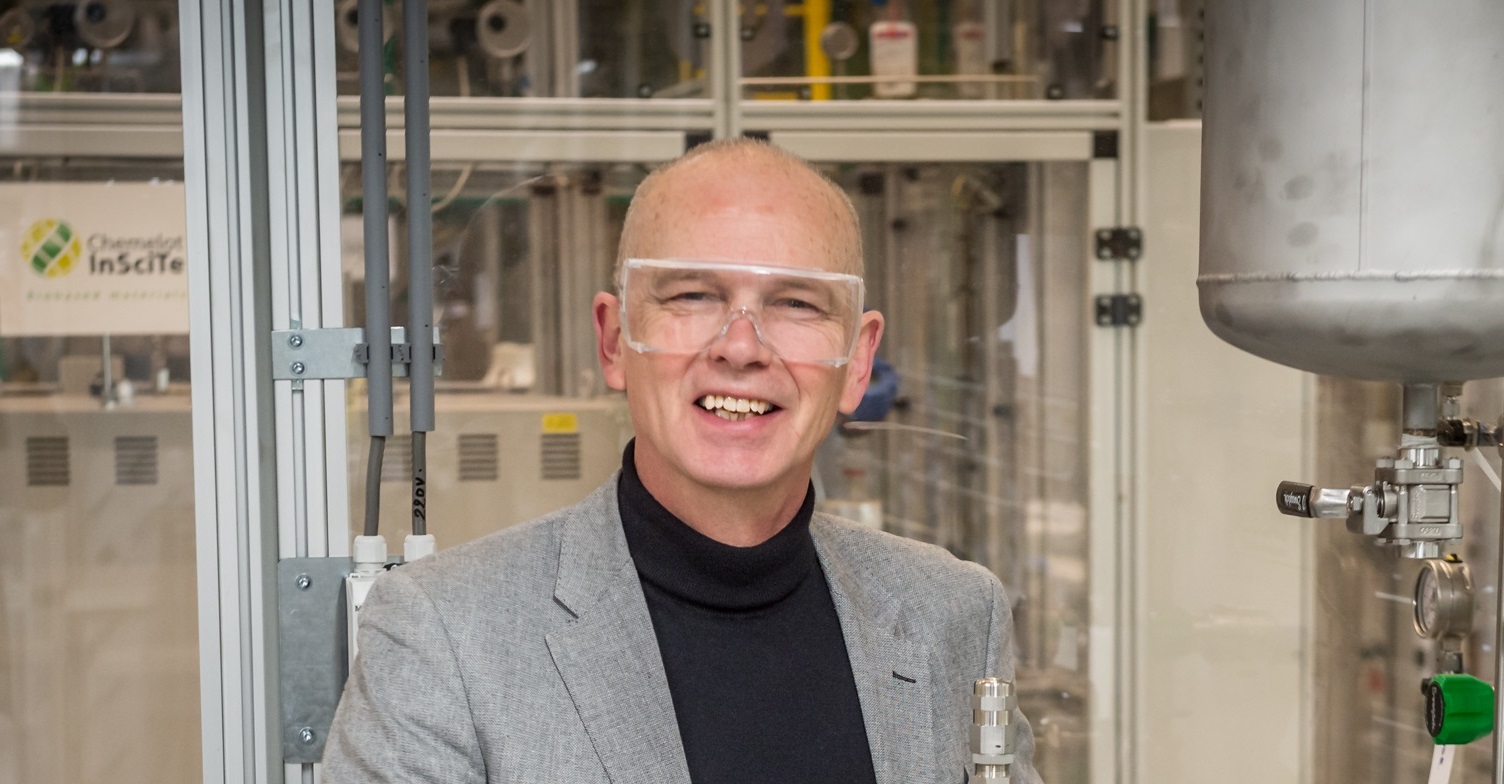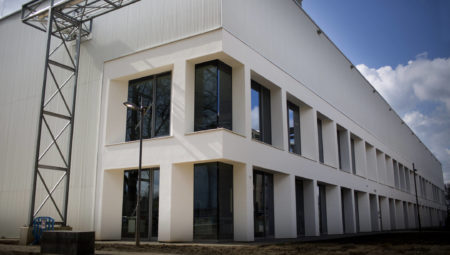Vertoro is an appealing success; it embodies what we are striving towards,” says Emiel Staring, Director of Chemelot InSciTe. “We are trying to scale up innovative concepts from the lab to the pilot plant. Once we’ve proved that it works there, a commercial party can pick it up and turn it into business. Just as important to me is that throughout this process, young people who started out as researchers at the university are transformed into enterprising researchers and then into investigative entrepreneurs. That’s one of our objectives.”
Shared risk
Chemelot InSciTe, located on the Brightlands Chemelot Campus, was founded in 2014 by five parties with ambitions in the market for bio-based and bio-medical materials: DSM, Maastricht University, Maastricht UMC+, Eindhoven University of Technology (TU/e) and the Province of Limburg. They also invested in a facility where physical work is being done to scale up innovations that have outgrown the lab scale. “At the pilot scale it must then be proved that a concept can be evolved into a reliable, well-functioning chemical-technological process, and one which is also economically feasible. But it’s this same industry which still considers the further development as being too risky. Things suddenly succeed in a consortium, with its joint knowledge, shared costs and shared risk.”
What is notable here is that InSciTe takes care of both the process-based supervision and the development of the economic possibilities. “Each project is assigned two project leaders: one responsible for the substantive progress, and the other one focusing on commercialising the technology. There’s plenty of interaction between these roles, because they’re both equally important. How you develop the technology also determines how you can commercialise it. That’s the unique character of Chemelot InSciTe: bringing together people with a wide range of knowledge and skills.”
Supply chain
One of the aspects Staring regularly encounters is that not all chemical companies are used to working with biomass. “They wonder whether there’s sufficient supply, whether the quality is stable, or whether the supply is seasonal. This produces the need to cooperate with other parties in the supply chain. The Bio Treat Center in Venlo is a valuable partner here. It’s an organisation with a thorough knowledge of the supply chains, letting us establish seamless cooperation between the raw material supplier and the commercialising party.” Chemelot InSciTe also cooperates with AMIBM in a range of projects within Limburg, and outside it with parties in other European regions, such as RWTH Aachen, the universities in Leuven and Ghent, and the Bio Base Europe Pilot Plant.
Future
In 2014 the partners in Chemelot InSciTe raised € 80 million for the start, constructing the pilot plant and financing the first five years, after which the institute was expected to become more independent. Staring believes this will certainly succeed. “We are now in the process of organising the second financing round. In total, we have already committed almost 40 parties, all of them very aware of our successes in recent years. That’s just a foretaste. We’ve also acquired funds ourselves, and are seeking financial support for our projects in Europe. Combined with all the lessons we have learned, this will let Chemelot InSciTe continue as an indispensable link in the development of the bio-based economy in Limburg.
This article was written in cooperation with Chemelot InSciTe.
Image: Chemelot InSciTe



